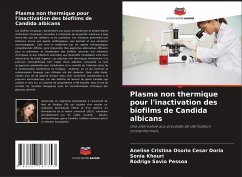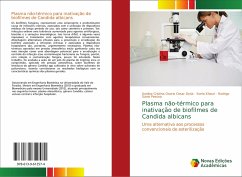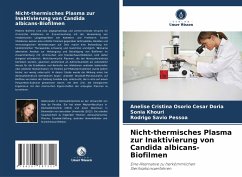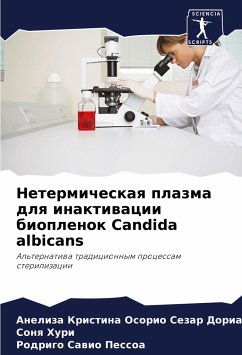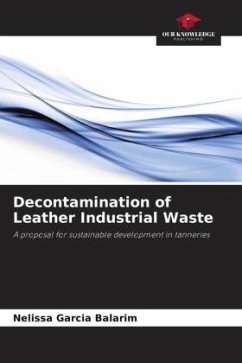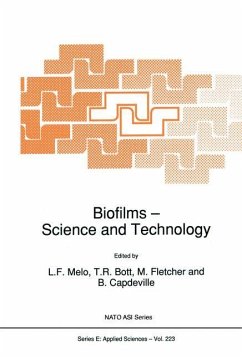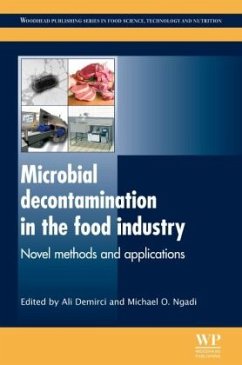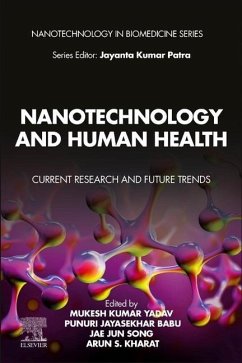
Non-thermal plasma for the inactivation of Candida albicans biofilms
An alternative to conventional sterilization processes
Versandkostenfrei!
Versandfertig in 6-10 Tagen
19,99 €
inkl. MwSt.

PAYBACK Punkte
10 °P sammeln!
Fungal biofilms represent a ubiquitous and predominant cause of chronic infections associated with the use of long-term medical devices such as catheters and prostheses. Such infections exhibit an increased tolerance to antifungal agents, biocides and immunological variations. This makes treatment with conventional therapeutic agents difficult, and sometimes impossible. Effective alternative approaches to the prevention and eradication of biofilm associated with chronic and hospital device-associated infections are therefore urgently needed. Non-thermal plasmas operated at atmospheric pressure...
Fungal biofilms represent a ubiquitous and predominant cause of chronic infections associated with the use of long-term medical devices such as catheters and prostheses. Such infections exhibit an increased tolerance to antifungal agents, biocides and immunological variations. This makes treatment with conventional therapeutic agents difficult, and sometimes impossible. Effective alternative approaches to the prevention and eradication of biofilm associated with chronic and hospital device-associated infections are therefore urgently needed. Non-thermal plasmas operated at atmospheric pressure are gaining increasing attention as a potential approach for the eradication and control of infection and/or bacterial or fungal contamination; however, with regard to fungal contamination, little has been studied. In this work, the action of an Argon and/or compressed air plasma jet, operated at atmospheric pressure, on biofilms of yeasts of the genus Candida spp grown in vitro on a polyurethane substrate was evaluated, with the aim of correlating the biological results with the chemical characteristics of the plasmas generated.



